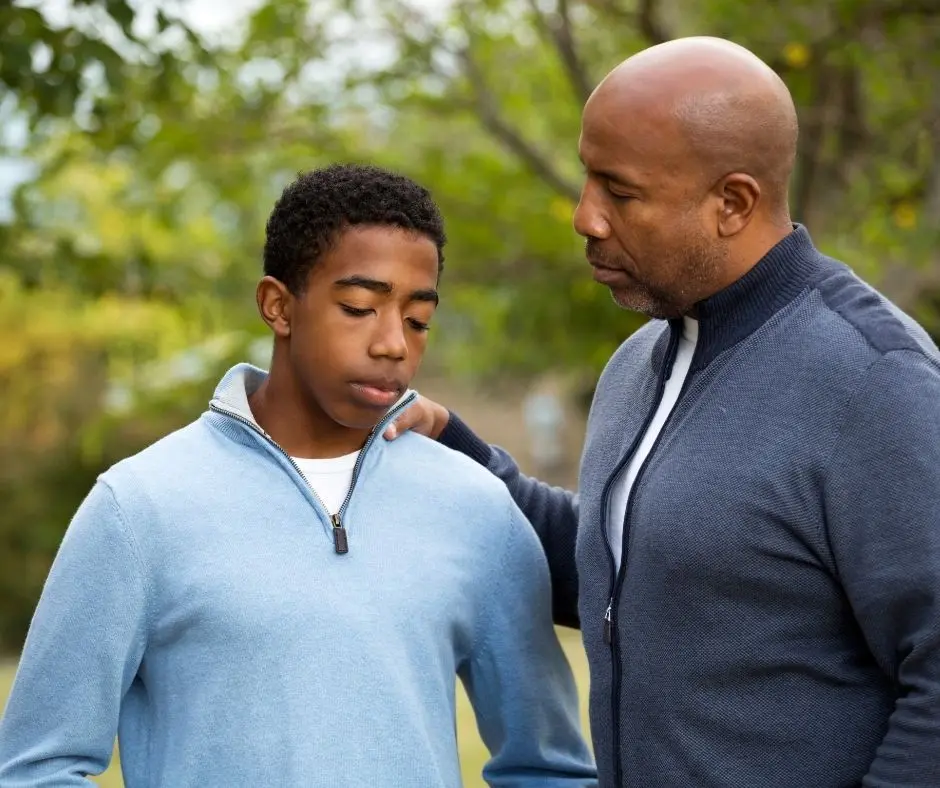Co-parenting after divorce can require parents to strike a delicate balance. On the one hand, you and your ex already have your own unique ways of managing your children’s care. On the other, you will have to adjust to doing so according to custodial orders and set placement schedule. As you enter into this new dynamic, you will also need to be mindful of your kids’ ages and emotional and developmental needs. It’s also important to recognize that your co-parenting approach during adolescence will be different than when your kids were younger. Here is more on co-parenting teens after divorce.
Meeting Your Kids Where They Are Developmentally
As you and your ex-co-parent, it will probably help to know more about your teen’s developmental stages. When kids are younger, they need you to make decisions for them and help maintain consistency and structure. As they transition into early adulthood, they are looking to become more autonomous. Your teen is also probably going to be prioritizing peer relationships more.
Researchers from the Massachusetts Institute of Technology’s (MIT’s) Raising Teens Project have identified several critical developmental tasks that teenagers need to undertake to transition to adulthood successfully.
Some of these tasks include:
- Developing and applying abstract thinking skills
- Developing and applying a new perspective on human relationships
- Identifying meaningful moral standards, values, and belief systems
- Understanding and expressing more complex emotional experiences
- Forming friendships that are mutually close and supportive
- Establishing key aspects of identity
- Meeting the demands of increasingly mature roles and responsibilities
- Renegotiating relationships with adults in parenting roles
As co-parents, you may be used to making choices for your children with the goals of maintaining your relationship and raising your kids. However, as your kids move into adolescence and through some or all of these tasks, it will be important to consider their changing perspectives and the need to establish their identities and solidify peer relationships.

Adapting Existing Orders to Meet Their Current Circumstances
Parents going through a divorce will have to make several decisions regarding their children’s upbringing. They will also establish a physical placement schedule and enter into decision-making agreements. Once all is said and done, parents will be left to raise their children according to these legal and physical custody orders.
If your children were small when you developed your custody and placement orders, you may need to re-evaluate and adjust some of the terms to reflect their current developmental stages and needs. For example, you and your ex may have a placement schedule that was created when the focus was making sure your child spent equal time with each of you.
At that time, you may not have been thinking of them being involved in sports or needing to see more of their neighborhood friends. Now that your kids are older, you may need to adapt placement time to allow them to spend time with their peers and participate in extracurricular activities.
Changing Communication Styles and Content
When your kids were little, you may have felt it was better to limit information and tailor explanations for their maturity level. While it may still be important to be judicious in sharing some details with your teens, you may need to broaden your approach.
Your teens are now in a place where they want to have their voices heard and have a deeper understanding of you and your reasons for making certain decisions that pertain to them and their lives. That being said, you should also remember that they are not adults, and it can be a fine line between having a more mature discussion and giving them an inappropriate amount of information.
Therefore, you should continue being careful with what you choose to share with them. Further, there should still be a boundary regarding talking negatively about the divorce and the other parent regardless of your teen’s stage of maturity.
As children age, they may also express a preference regarding where they want to spend placement time. In Wisconsin, kids don’t decide where they will spend placement time. That choice is either made by the court or agreed upon by the parents. However, the court can take a child’s preference into consideration when deciding whether to modify a placement schedule.
If your teen is asking to make a significant change to where they are spending time, this may be an issue you will want to discuss with a Wisconsin child custody attorney.
Contact an Experienced Wisconsin Family Law Attorney
Wisconsin Attorney and Mediator Karyn Youso of First Look Family Law is an attorney and Mediator with the experience you need to help you with your Wisconsin custodial and divorce matter. If you have a family law case in Metro Milwaukee, Waukesha, or Brookfield, please contact us today and let us take a “first look” at your situation.










